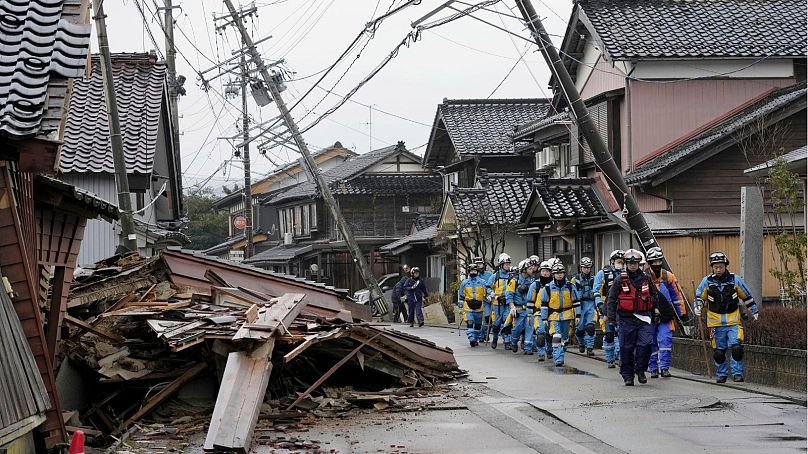Japan's Prime Minister Fumio Kishida said rescuers are "in a race against time" to find the survivors of the series of powerful earthquakes that hit western Japan this week.
Rescuers in western Japan were scrambling to search for survivors believed to be trapped under collapsed buildings on Wednesday, as freezing temperatures and heavy rain are expected to strike the same area which was devastated by a powerful earthquake the day before.
 ADVERTISEMENT
ADVERTISEMENT
 ADVERTISEMENT
ADVERTISEMENT
A 7.6-magnitude quake hit the Ishikawa prefecture - on the island of Honshu and on the opposite coast from the capital Tokyo - on Monday, triggering tsunami waves that were more than a metre high, starting a fire and collapsing buildings.
Aftershocks were felt in Ishikawa prefecture and nearby areas two days after the initial quake, with the Noto peninsula being the most severely hit. At least 62 people were confirmed to have died, while more than 300 were injured by the quakes, according to Japanese authorities.
Talking at an emergency task force meeting on Wednesday, Prime Minister Fumio Kishida said that rescue efforts were being made by local authorities, police, firefighters and other operational units, including rescue dogs. The first 72 hours are considered crucial to save lives after disasters.
Kishida said rescuers are “in a race against time” to save survivors. The prime minister said authorities had received "a lot of information about people in need of rescue and there are people waiting for help." It’s unknown how many survivors might be under the rubble, waiting to be rescued.
A weather warning by the Japan Meteorological Agency (JMA) has added urgency to the rescue operations, as heavy rain is expected to fall in the area, complicating efforts to find survivors with the risk of landslides.
Many houses in the area hit by the quakes were still without power, water and cell phone service.
While the number of people killed in the quakes has climbed in the past few days, the damage caused by the natural disasters appears to be relatively modest thanks to the efforts Japan has made in the past years to make its buildings more resilient to similar events. The prompt response from the public and officials has also likely limited damage and the number of deaths.
Tsunami warnings were lifted by the JMA on Tuesday.











